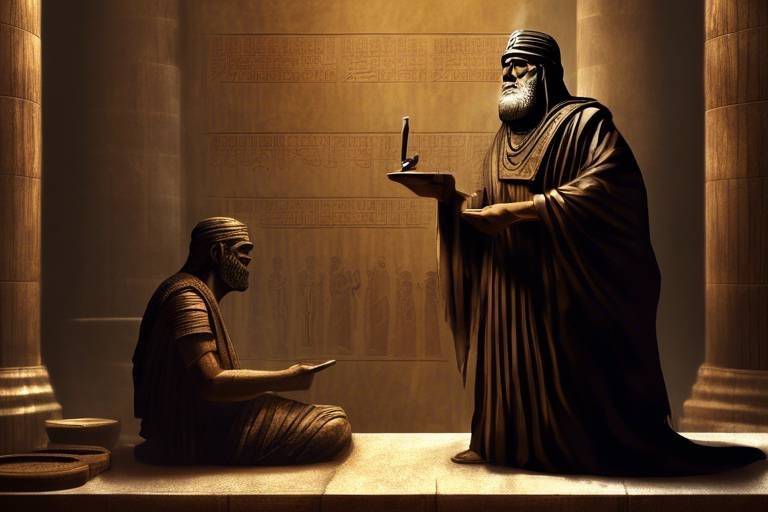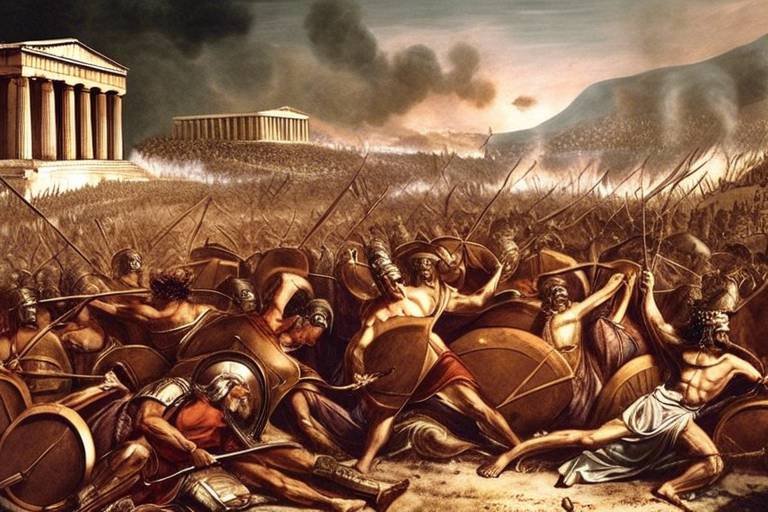The Historical Significance of the Enlightenment Thinkers
During the 17th and 18th centuries, a remarkable intellectual movement known as the Enlightenment took Europe by storm, ushering in a new era of thought that would shape the course of history. At the heart of this movement were the Enlightenment thinkers, whose ideas and beliefs revolutionized political, social, and philosophical discourse. These thinkers, often referred to as the "philosophes," challenged the status quo, questioned traditional authority, and championed the ideals of reason, individualism, and liberty.
The Enlightenment era was a time of intellectual awakening, characterized by a fervent pursuit of knowledge and a rejection of dogma and superstition. Enlightenment thinkers sought to apply the principles of reason and scientific inquiry to all aspects of human life, from politics and governance to ethics and morality. Their influence extended far beyond the confines of academia, sparking debates and discussions that would ultimately reshape society and culture.
Key figures of the Enlightenment, such as Voltaire, Rousseau, Montesquieu, and Locke, played pivotal roles in shaping the intellectual landscape of their time. Their writings and ideas challenged prevailing notions of power, authority, and social order, laying the groundwork for the emergence of modern democratic societies. These thinkers advocated for the rights of individuals, the separation of powers, and the importance of tolerance and diversity in a pluralistic society.
The Enlightenment thinkers' impact was not confined to the realm of ideas; their influence reverberated throughout society, inspiring social movements and political revolutions. The ideals of liberty, equality, and fraternity espoused by Enlightenment thinkers served as rallying cries for those seeking to overthrow oppressive regimes and establish more just and equitable societies. The American Revolution and the French Revolution, both deeply influenced by Enlightenment philosophy, are prime examples of the transformative power of these ideas.
Today, the legacy of the Enlightenment thinkers endures, serving as a beacon of hope and inspiration for those who champion reason, human rights, and progress. Their emphasis on critical thinking, empirical evidence, and the pursuit of knowledge continues to shape contemporary political and social structures, guiding us towards a more enlightened and inclusive future.

Origins of Enlightenment Ideals
The origins of Enlightenment ideals can be traced back to the intellectual movements of the Scientific Revolution and the Renaissance, which laid the groundwork for the Enlightenment era. During the Scientific Revolution, thinkers like René Descartes and Galileo Galilei challenged traditional beliefs and emphasized the importance of empirical evidence and rational inquiry. Their revolutionary ideas paved the way for a new era of intellectual exploration and critical thinking.
Descartes, known for his famous phrase "Cogito, ergo sum" (I think, therefore I am), highlighted the power of individual reason and skepticism in understanding the world. Galileo's astronomical observations contradicted established dogmas, demonstrating the value of observation and experimentation in uncovering the truths of the natural world.
These early pioneers set the stage for Enlightenment thinkers to further develop these ideals of reason, individualism, and empirical evidence. The Renaissance period also played a significant role in shaping Enlightenment thought, with its emphasis on humanism, art, and the rediscovery of classical knowledge.
The Enlightenment drew inspiration from these intellectual movements, building upon their foundations to challenge traditional authority and promote the values of liberty, equality, and progress. The quest for knowledge and the pursuit of truth became central tenets of Enlightenment philosophy, marking a significant departure from the superstitions and dogmas of the past.

Philosophical Foundations
The of the Enlightenment era were built upon a revolutionary shift in thinking that emphasized reason, individualism, and the rejection of traditional authority. This intellectual movement championed the use of empirical evidence and critical thinking over blind faith and superstition. Thinkers of the Enlightenment period believed in the power of human reason to understand the world and improve society.
At the core of Enlightenment philosophy was the belief that individuals had the capacity to think for themselves and make decisions based on rationality rather than relying on the dictates of religious or political authorities. This emphasis on individual autonomy challenged the prevailing notions of hierarchy and obedience, paving the way for a more egalitarian and democratic society.
Enlightenment thinkers sought to question and challenge established beliefs and institutions, advocating for freedom of thought and expression. They promoted the idea that knowledge should be accessible to all, not just the privileged few, and that education was key to empowering individuals and advancing society as a whole.
By promoting the values of tolerance, liberty, and progress, the Enlightenment philosophers laid the groundwork for a new era of intellectual freedom and social change. Their ideas continue to resonate in modern debates about human rights, political governance, and the role of reason in shaping our understanding of the world.

Key Thinkers of the Enlightenment
During the Age of Enlightenment, several key thinkers emerged whose ideas and writings significantly influenced the intellectual landscape of the time. These Enlightenment philosophers challenged traditional beliefs, advocated for reason and individual rights, and laid the groundwork for modern democratic societies. Let's delve into the lives and contributions of some of the most prominent figures of the Enlightenment.
Voltaire: Known for his wit, satire, and advocacy for freedom of speech, Voltaire was a French philosopher and writer who championed religious tolerance and criticized oppressive institutions such as the Catholic Church. His works, including "Candide," challenged prevailing social norms and promoted the values of reason and tolerance.
Rousseau: Jean-Jacques Rousseau, a Swiss philosopher, is renowned for his ideas on social contract theory and the concept of the "noble savage." His works, such as "The Social Contract," emphasized the importance of individual freedom and the role of the general will in creating a just society.
Montesquieu: A French political thinker, Montesquieu is best known for his theory of the separation of powers, which greatly influenced the development of modern constitutional government. In his seminal work "The Spirit of the Laws," Montesquieu advocated for a system of checks and balances to prevent tyranny and protect individual liberties.
Locke: John Locke, an English philosopher, is considered one of the founding fathers of liberalism. His writings on natural rights, government by consent, and the social contract laid the groundwork for democratic governance and influenced the American and French Revolutions. Locke's ideas on property rights and the limitations of government power continue to shape political thought to this day.
These Enlightenment thinkers challenged the prevailing dogmas of their time and paved the way for a new era of intellectual inquiry and social progress. Their ideas continue to resonate in modern debates on governance, individual rights, and the pursuit of a just society.

Enlightenment Ideas and Society
Exploring the impact of Enlightenment thinkers on shaping modern political, social, and philosophical thought, and their contributions to the Age of Enlightenment in Europe during the 17th and 18th centuries.
Tracing the roots of Enlightenment ideals back to the Scientific Revolution and the Renaissance, highlighting key figures like Descartes and Galileo who laid the groundwork for the Enlightenment era.
Examining the philosophical underpinnings of the Enlightenment, including the emphasis on reason, individualism, and the rejection of traditional authority in favor of empirical evidence and critical thinking.
Exploring the contributions of influential Enlightenment figures such as Voltaire, Rousseau, Montesquieu, and Locke, and their impact on shaping the intellectual landscape of their time.
The Enlightenment era brought forth a wave of transformative ideas that reshaped societies and challenged existing norms. One of the central themes of this period was the promotion of liberty, equality, and religious tolerance as fundamental values for a progressive society. These concepts were not merely theoretical but had a profound impact on social movements and political revolutions.
Enlightenment thinkers advocated for the rights of individuals and the importance of rationality in governance, sparking debates on the role of government and the rights of citizens. Their ideas paved the way for the development of modern democratic societies, where the rule of law and respect for human rights are paramount.
Moreover, the Enlightenment promoted the idea of progress through education and the dissemination of knowledge, challenging superstitions and dogmas that hindered intellectual growth. This emphasis on reason and critical thinking laid the groundwork for scientific advancements and societal progress.
Discussing the role of Enlightenment principles in inspiring the American Revolution and the drafting of the Declaration of Independence, with a focus on the influence of thinkers like John Locke.
Examining the connection between Enlightenment philosophy and the French Revolution, exploring how ideas of liberty, equality, and fraternity fueled revolutionary fervor and led to profound societal changes.
Reflecting on the enduring legacy of Enlightenment thought in shaping contemporary political and social structures, and its ongoing influence on the promotion of reason, human rights, and progress.

Enlightenment and the American Revolution
The connection between Enlightenment philosophy and the American Revolution is a fascinating tale of intellectual inspiration turning into real-world action. The Enlightenment thinkers, with their emphasis on individual rights, liberty, and the social contract theory, laid the groundwork for the revolutionary ideas that fueled the American colonies' quest for independence. Figures like John Locke, whose theories on natural rights and limited government greatly influenced the Founding Fathers, played a crucial role in shaping the ideals behind the American Revolution.
Enlightenment ideas such as the belief in the inherent rights of individuals, the importance of representative government, and the rejection of absolute monarchy provided a philosophical foundation for the American Revolution. The Declaration of Independence, penned by Thomas Jefferson, reflects the Enlightenment principles of self-governance, natural rights, and the right to revolt against oppressive rule. The revolutionary spirit that swept through the colonies was fueled by the Enlightenment's call for freedom, equality, and justice.
The American Revolution, with its focus on independence and democratic governance, was a direct result of the Enlightenment's influence on the intellectual and political landscape of the time. The ideals of the Enlightenment, championed by thinkers like Locke, Voltaire, and Rousseau, inspired the American colonists to challenge the authority of the British monarchy and establish a new nation based on the principles of liberty, equality, and self-determination.

Enlightenment and the French Revolution
During the tumultuous period of the French Revolution, the ideals of the Enlightenment played a significant role in shaping the course of events and influencing the revolutionary spirit that swept through France. The Enlightenment philosophy, with its emphasis on liberty, equality, and fraternity, provided the intellectual foundation for the revolutionary fervor that fueled the uprising against the monarchy and the aristocracy.
Thinkers of the Enlightenment, such as Voltaire and Rousseau, had advocated for the rights of the common people and criticized the oppressive nature of the existing social and political structures. Their ideas of individual rights and the need for a more just and equitable society resonated with the discontented masses in France, who were suffering under the burden of inequality and injustice.
The French Revolution, with its call for the overthrow of the monarchy and the establishment of a republic based on democratic principles, was a direct result of the Enlightenment ideals that had been circulating in intellectual circles for decades. The revolutionaries sought to create a society based on reason, where all individuals would be equal before the law and have the freedom to pursue their own interests.
Enlightenment thinkers like Montesquieu had also advocated for the separation of powers within government to prevent tyranny and ensure the protection of individual rights. This concept of a balanced and accountable government influenced the revolutionary leaders in France as they sought to create a new political system that would uphold the principles of liberty and equality.
Overall, the connection between the Enlightenment philosophy and the French Revolution is undeniable, as the ideas and values promoted by Enlightenment thinkers provided the ideological framework for the revolutionary changes that swept through France in the late 18th century. The legacy of the French Revolution continues to be felt today, as it marked a turning point in the history of France and had a profound impact on the development of modern democratic societies.

Legacy of the Enlightenment
The legacy of the Enlightenment continues to reverberate through modern society, shaping our political, social, and intellectual landscape in profound ways. One of the most enduring legacies of this period is the emphasis on reason and critical thinking as guiding principles for human progress. Enlightenment thinkers championed the power of reason to challenge traditional authority and dogma, paving the way for the scientific revolution and the Age of Reason.
Furthermore, the Enlightenment's promotion of individual rights and liberty has had a lasting impact on the development of modern democratic societies. Ideas of freedom of speech, religious tolerance, and equal rights for all individuals were central tenets of Enlightenment philosophy that continue to shape our understanding of human rights and social justice today.
In addition, the Enlightenment's emphasis on education and the dissemination of knowledge laid the groundwork for the Age of Information we live in today. The belief in the power of education to empower individuals and promote social progress remains a core value inherited from the Enlightenment era.
Moreover, the legacy of the Enlightenment can be seen in the ongoing pursuit of scientific discovery and technological innovation. The Enlightenment thinkers' commitment to empirical evidence and rational inquiry continues to inspire advancements in medicine, technology, and other fields that improve the quality of human life.
Frequently Asked Questions
- What is the Age of Enlightenment?
The Age of Enlightenment, also known as the Age of Reason, was a cultural movement in Europe during the 17th and 18th centuries that emphasized reason, science, individualism, and skepticism of traditional authority.
- Who were some key Enlightenment thinkers?
Key Enlightenment thinkers include Voltaire, Rousseau, Montesquieu, Locke, and Descartes. These philosophers and writers played pivotal roles in shaping modern political, social, and philosophical thought.
- What were some core ideals of the Enlightenment?
The Enlightenment promoted ideals such as liberty, equality, religious tolerance, and the importance of reason and critical thinking. These principles influenced social movements and the development of democratic societies.
- How did Enlightenment ideas impact revolutions?
Enlightenment ideas of liberty and equality inspired movements such as the American Revolution and the French Revolution. These revolutions sought to overthrow oppressive systems and establish more just and equitable societies.
- What is the legacy of the Enlightenment?
The legacy of the Enlightenment includes the promotion of human rights, reason, and progress. Its influence can be seen in modern political structures, the concept of democracy, and the ongoing pursuit of knowledge and enlightenment.



















